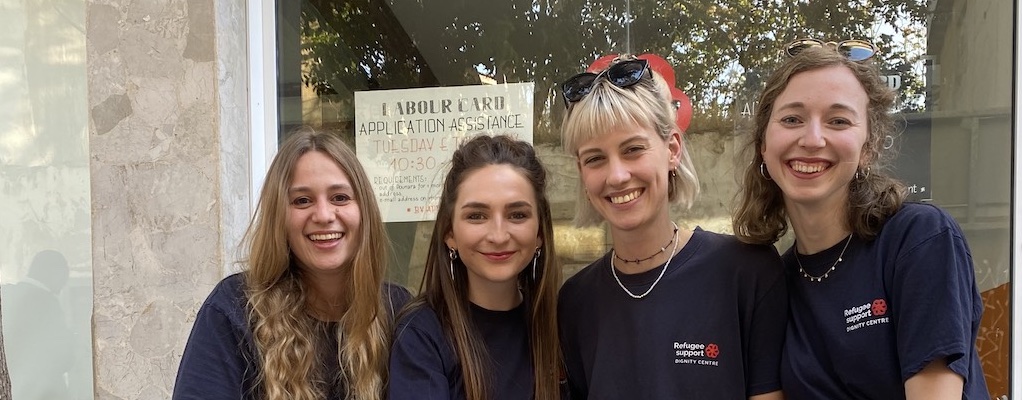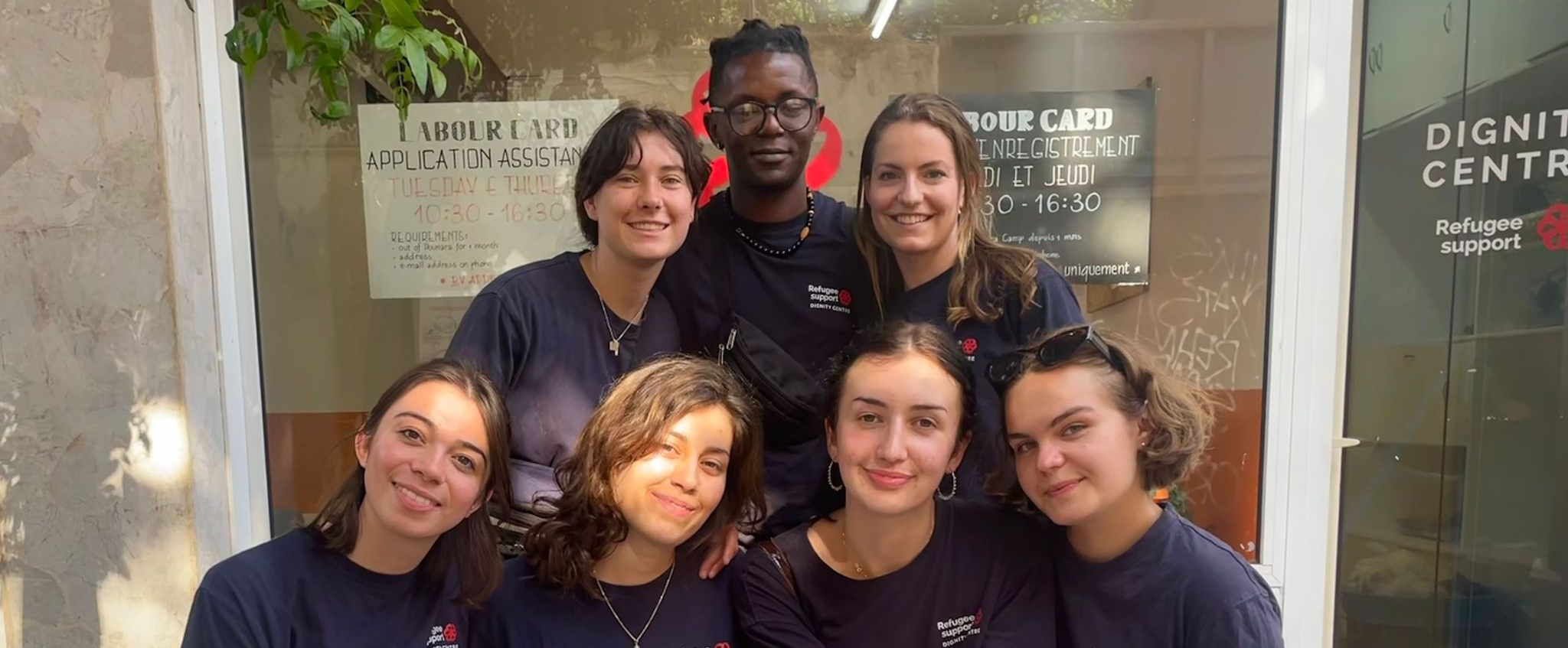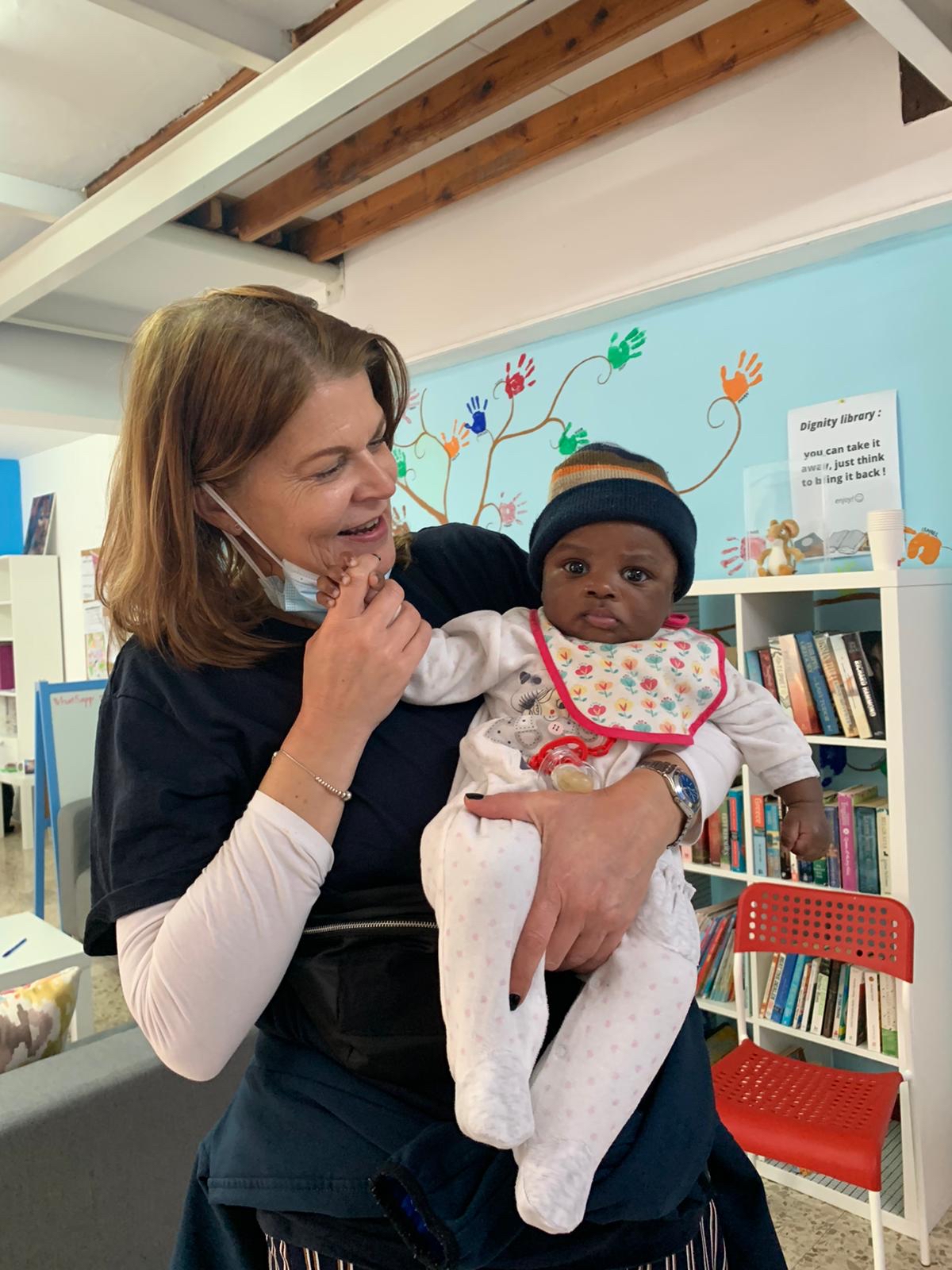The camp is just a few hundred meters down the road from the hotel, a five-minute drive, not more than a twenty-minute walk…another world. We turn into the drive, the guard opens the gate, we roll in. It looks like the abandoned military camp it is, dilapidated buildings and overgrown grass. People are milling about in flip-flops, a couple kids are in one corner of the yard, plotting fun and trouble.
We walk to the “shop”, while the volunteers explain the camp. 800 refugees, a little less than half of them children, several pregnant women, some infants, an epileptic. We enter the shop, a room of dust with old grocery-store shelves installed from floor to ceiling on every wall. Tea, coffee, sugar, shower gel, shampoo, sanitary pads, diapers. Cookies that the British volunteers call “biscuits” and a pile of toothpaste in a blue box. The group set this up, a shop where nobody shops and everything is free, to fill the immediate needs of the refugees. The military provides three meals a day and not much else. The families are split into groups and each group has a set time to pick up new supplies twice a week. We show you how to squeeze shampoo and shower gel into plastic cups to ration it out and you set to work making more cup-fulls than could possibly be used; they’re gone by the end of the day. We clean up the shop for a bit, restock, and then some volunteers take you to “look about.”
We cross the unused basketball court and round the corner by the medics building (sporadically occupied) and there you are, in the middle of a refugee camp. You’d be surprised how much it looks like what it is. A sea of tents, printed with UNHRC on the side, in orderly rows of tragedy. Some are green and some are white. That’s about the only variation from without. From within, it’s a different story.
As we make the rounds, you see each one is unique, a home, a sanctuary, a hated resting place. Some are chaotic, even foul, some meticulously clean. Some are full of children, some of young men and smoke. Some have regulation army blankets and some commercial sleeping bags. Some even have cots, which the army handed out till they ran out. One or two families live in each tent, often six or seven people at a time. We visit a family whose children have been sick. The paracetamol has done its work, the fevers have come down.
We visit an old man in a wheelchair. His legs are hurting, his medication has run out. You make a note to go to the pharmacy. We visit a woman in her eighth month of pregnancy, her back aching, her eyes defiant. She will have this baby in Germany, she tells you. She would be walking there now but her husband won’t let her. He says the borders are closed, that she is due soon, that she should rest. You nod, agreeing with him. She turns away from the translator, speaks directly to you, “My baby, Alemania!” she insists.
You smile awkwardly, your European passport burning a hole in your jeans pocket. Paracetamol and prescriptions are all very well, but powerlessness engulfs you.



